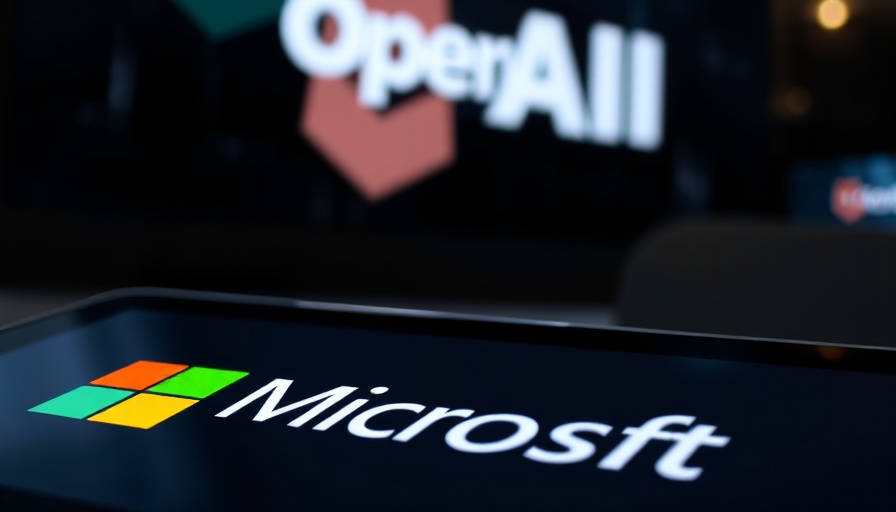
Microsoft's Bold Move into AI Competitiveness
In an intriguing twist within the tech industry, Microsoft is forging its own path in artificial intelligence by developing new models to challenge OpenAI's dominance. The company, known for its early partnership with the AI provider, is now creating in-house AI reasoning models under the codename MAI. These models aim to offer a competitive edge, significantly shifting the landscape for AI applications like Microsoft 365 Copilot.
The Race for AI Reasoning Capabilities
Microsoft's new AI models are not merely replacements for existing technologies; they aim to enhance reasoning capabilities, paving the way for a nuanced approach to complex problem solving. The technology includes chain-of-thought processing, allowing for intermediate reasoning when generating results. This is a significant progression in AI and could position Microsoft as a leader in innovation, particularly as reasoning models are seen as a frontier in the sector.
Strategic Development Amid Industry Shifts
The move to diversify AI technology roots comes amid concerns regarding Microsoft's reliance on OpenAI. While the partnership initially awarded Microsoft a foothold in the AI market, the increasing demand for more versatile and cost-effective models has led to the exploration of alternatives, including collaborations with emerging players like DeepSeek and xAI. Microsoft's extensive AI unit, led by expert Mustafa Suleyman, is expected to finalize MAI's development soon, with plans for broader access through an API.
Comparative Insights: OpenAI vs. Microsoft’s AI Models
OpenAI has long been recognized as a pioneer in the AI arena, especially following its successful launch of models like ChatGPT. However, Microsoft is banking on its in-house models to not only match but potentially surpass the capabilities offered by OpenAI's frameworks. Initial benchmark tests reveal that Microsoft’s MAI models are nearing parity with OpenAI's top offerings, marking a turning point in AI development paradigms.
Future Implications for AI Development
As Microsoft seeks to establish itself independently of OpenAI's influence, the ramifications could extend beyond just technology. Should Microsoft succeed in launching these models, it would redefine competitive practices in AI development. Moreover, with capabilities like multimodal processing — handling text, speech, and visuals simultaneously — Microsoft is placing itself at the forefront of an increasingly dynamic tech landscape.
Keep an Eye on Microsoft's AI Progress
The stakes in the AI market have never been higher, with Microsoft actively ramping up its capabilities, potentially reshaping how enterprises approach AI integration into their workflows. As AI technology becomes inherently integral to various industries, observing Microsoft's trajectory could offer valuable insights for professionals keen on understanding emerging trends.
Microsoft’s gambit not only signals heightened competition but also underscores the broader technological evolution as companies adapt to new demands from consumers and industries alike. The world of AI is set for exciting developments, so staying informed is critical.
 Add Row
Add Row  Add
Add 




 Add Row
Add Row  Add
Add 

Write A Comment